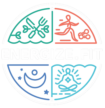When we think of protein powders, images of bodybuilders and hardcore athletes often come to mind. But in reality, protein supplementation has quietly become essential for many everyday individuals — far beyond just the fitness-obsessed.
Protein isn't just about building muscle; it's about repairing tissue, supporting immunity, managing blood sugar, aiding hormone production, and maintaining energy. Without enough protein, critical body systems begin to suffer silently.
Let's dive into who truly needs protein supplementation today — and why.
Three Key Groups That Benefit from Protein Powder
1.People Living with Lifestyle Diseases

If you have conditions like diabetes, cholesterol issues, thyroid imbalances, hypertension, or PCOS, your protein needs are often higher than average — and yet, many people in this group unknowingly consume too little.
Diabetes: Protein helps stabilize blood sugar. When meals lack sufficient protein, blood sugar spikes become more dramatic.
Cholesterol: Lean protein sources help balance lipid profiles and reduce dependence on carb-heavy foods that worsen cholesterol.
Thyroid Disorders: Protein is vital for hormone transport and cellular repair, which are compromised during thyroid dysfunction.
In simple terms: Protein becomes your body's "repair and regulation toolkit." Without enough, recovery slows and metabolic control weakens.Important: Always consult your healthcare provider to choose the right type and amount of protein if you have a medical condition.
2.Recreationally Active Individuals

You don't need to be a marathon runner to have elevated protein needs. Morning walkers, weekend hikers, casual gym-goers, dancers, yoga enthusiasts — anyone moving their body regularly increases tissue breakdown and rebuilding.
The surprising mistake many recreationally active people make? Overloading on carbohydrates and under-consuming protein.
- Movement stresses muscles (even light movement).
- Muscles need amino acids from protein to rebuild stronger.
- Without enough protein, recovery lags and fatigue increases.
A good rule: Aim for about 30g of quality protein post-activity, even if it's just a brisk walk or a Zumba class.
3. Senior Citizens (Age 55+)

Aging naturally reduces appetite, alters digestion, and accelerates muscle loss (sarcopenia).
Even if elders "eat normally," they often:
- Eat less quantity
- Prioritize soft, carb-rich foods
- Feel full quicker
Result? Unintentional malnutrition.
Protein supplementation becomes crucial to:
- Preserve lean muscle mass
- Support joint health
- Boost immunity
- Prevent frailty and falls
One scoop of a high-quality, easy-to-digest protein can radically improve an elder's strength and vitality.
Special Note: Vegetarians and Vegans

Even with a balanced diet, plant-based eaters often fall short on total protein intake and the complete amino acid profile needed by the body.
- Dairy (for vegetarians) and legumes help, but daily requirements may still be hard to meet.
- Strategic supplementation with clean, plant-based protein powders can bridge the gap — improving energy, muscle tone, and metabolic health.
So, Who Should Consider Protein Powders?
If you:
- Have a chronic condition (diabetes, cholesterol, thyroid, PCOS)
- Are moderately active
- Are 55 years or older
- Follow a vegetarian or vegan diet
You may significantly benefit from structured protein supplementation — not for vanity, but for vitality.
What About Isolate Proteins?
If you’re shopping for protein powders, you’ll often see terms like "Whey Concentrate" and "Whey Isolate."
Here’s the difference:
Whey Concentrate:
- Contains about 70-80% protein by weight.
- Retains some natural fats and carbohydrates (like lactose).
- Slightly more affordable, and good for general wellness.
Whey Isolate:
- Contains 90% or more protein by weight.
- Undergoes additional processing to remove most fat and lactose.
- Faster absorption, lower lactose content — ideal for people with mild lactose sensitivity or for post-workout recovery.
Plant-Based Isolates (like pea or soy isolates) are also available for vegans, offering highly concentrated protein with minimal carbs and fats.
Which one should you choose?
- If you want a clean, easily digestible protein with minimal extras — Isolate is a great choice.
- If you don't mind a few extra calories and want a more economical option — Concentrate works well.
When Might You Not Need It?
If you are consistently meeting your protein needs through balanced whole foods across all meals, you might not need additional supplementation.
However, most busy urban lifestyles, picky eating habits, restricted diets, or illness-related challenges make supplementation a smart and practical option.
Key Takeaway
Protein powders aren't a "shortcut." They're a nutritional tool — useful for anyone who struggles to meet their body's changing needs due to health, activity level, or age.
The goal isn't to load up on powders. It's to fuel your body smartly, consistently, and sustainably.
Always remember: Food first, supplements second. But when life, illness, or lifestyle create gaps, protein powders can be a simple, powerful ally for better health.
Choose wisely. Fuel intentionally.
Cholesterol Isn’t the Villain. Read to know why?
Follow us on Instagram for interesting tips and updates on fitness and overall wellness


